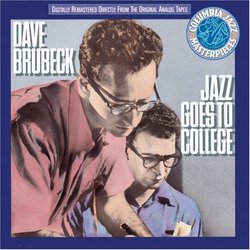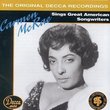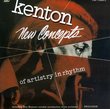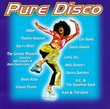| All Artists: Dave Brubeck Title: Jazz Goes to College Members Wishing: 2 Total Copies: 0 Label: Sbme Special Mkts. Release Date: 3/1/2008 Genres: Jazz, Pop Style: Cool Jazz Number of Discs: 1 SwapaCD Credits: 1 UPC: 886972483528 |
Search - Dave Brubeck :: Jazz Goes to College
 | Dave Brubeck Jazz Goes to College Genres: Jazz, Pop
|
Larger Image |
CD DetailsSimilarly Requested CDs
|
CD ReviewsJust when things looked the darkest-- Samuel Chell | Kenosha,, WI United States | 04/26/2008 (5 out of 5 stars) "An absolutely quintessentially essential recording. Lest there be a shred of doubt that in the 1950s there were two alto saxophonists who mattered above all--first Bird and Desmond; after Bird's death, Cannonball and Desmond--let this recording make the case. Paul may have moments of greater excitement, reach even greater heights of inspiration on the earlier "Brubeck At Oberlin," but on no other recording does he dominate so completely yet play as lyrically, thoughtfully, and personally as on this first (and very possibly best) Columbia recording by the quartet. How can Sony/Columbia have ignored this recording for twenty years, resulting in prohibitive collectors' prices of fifty dollars and up? This was Brubeck-Desmond's greatest period, before the tamer, comparatively sterile and more formulaic studio albums, including "Time Out." Exploring the expansive, exquisitely and climactically structured solos of "Balcony Rock," "Le Souk," "I Want to Be Happy," etc. courtesy of the Columbia Record Club was a revelation to tens of thousands of young people in search of an alternative to Dick Clark's American Bandstand, to Elvis and the Beatles. Listening to these sounds now and comparing them to the music that currently encourages a semblance of the same enthusiasm among college-aged young people is to experience disbelief and incomprehension. How could a group without guitars, chest-thumping amplification, bereft of straggly hair and denim, and providing not so much as a single vocal produce such excitement? Until I just now discovered this 2008 reissue, I was ready to write off Sony/Columbia and the other three big domestic recording companies. It appears they don't care, don't know, and won't spend an extra dime on anything that won't pay big dividends. Count yourself lucky that for a brief moment the industry felt differently: hence Sony's considerable investment in the near-miraculous digital restoration of "Ellington at Newport '56." (All the same, keep your turntable in playing condition.) I never appreciated til now the degree to which this is Paul's recording--partly because the makers have rearranged the order of tunes, leading off with his unequalled solo on "Balcony Rock" but also because he's simply sui generis, so much so that Brubeck doesn't even try to follow his masterful solo on "The Song Is You." At the same time, the pianist does score with thunderous lightning bolts on the aforementioned "Le Souk," and he frequently scales down his dynamics to complement Desmond's Only a fool would rush in after the altoist's angelic flight on "Don't Worry About Me," but Brubeck sustains interest while maintaining a more earthbound course with thick chordal textures and building dynamics. Forget all the silly dated descriptions--cool school, West Coast, Konitz-like, unswinging. During this period the Brubeck Quartet commands the listener's undivided attention, and for extensive periods of time, as few other groups, or individual soloists, in the history of jazz. The rhythm section of Joe Dodge and Norman Bates dutifully and gamely "keeps time"--so much the better; this is an instance where a "tight" and ceaselessly "swing machine" approach would have gummed up the works. The swing is generated internally, and rather than the body responding with visceral approval, the mind continually rocks and reels. Shame on those (including this writer) who ever dismissed this recording as too white, too fay, too square, too distant from hard bop and the African-American tradition in jazz as played out on Blue Note records, as too "square." The music is squarely in the same tradition--extemporaneous, soulful, in the moment, unrepeatable and priceless." A Classic David Ripley | Boise, ID | 05/16/2008 (5 out of 5 stars) "This is the first 'modern' jazz album I ever owned. It was included in a 3 album offering from the Columbia Record Club in 1954. The other 2 albums were compilations of big band and dixieland respectively. As a 13 year old in 1954 Jazz Goes to College opened me up to the world of what was then called 'progressive' or 'modern' jazz. Brubeck's quartet made the sound of progressive jazz very accessible and started my 50+ year love affair with jazz for which I am eternally grateful. If you are new to jazz this is a great place to start. If you are a seasoned listener this a wonderful addition to any collection."
|

 Track Listings (7) - Disc #1
Track Listings (7) - Disc #1








